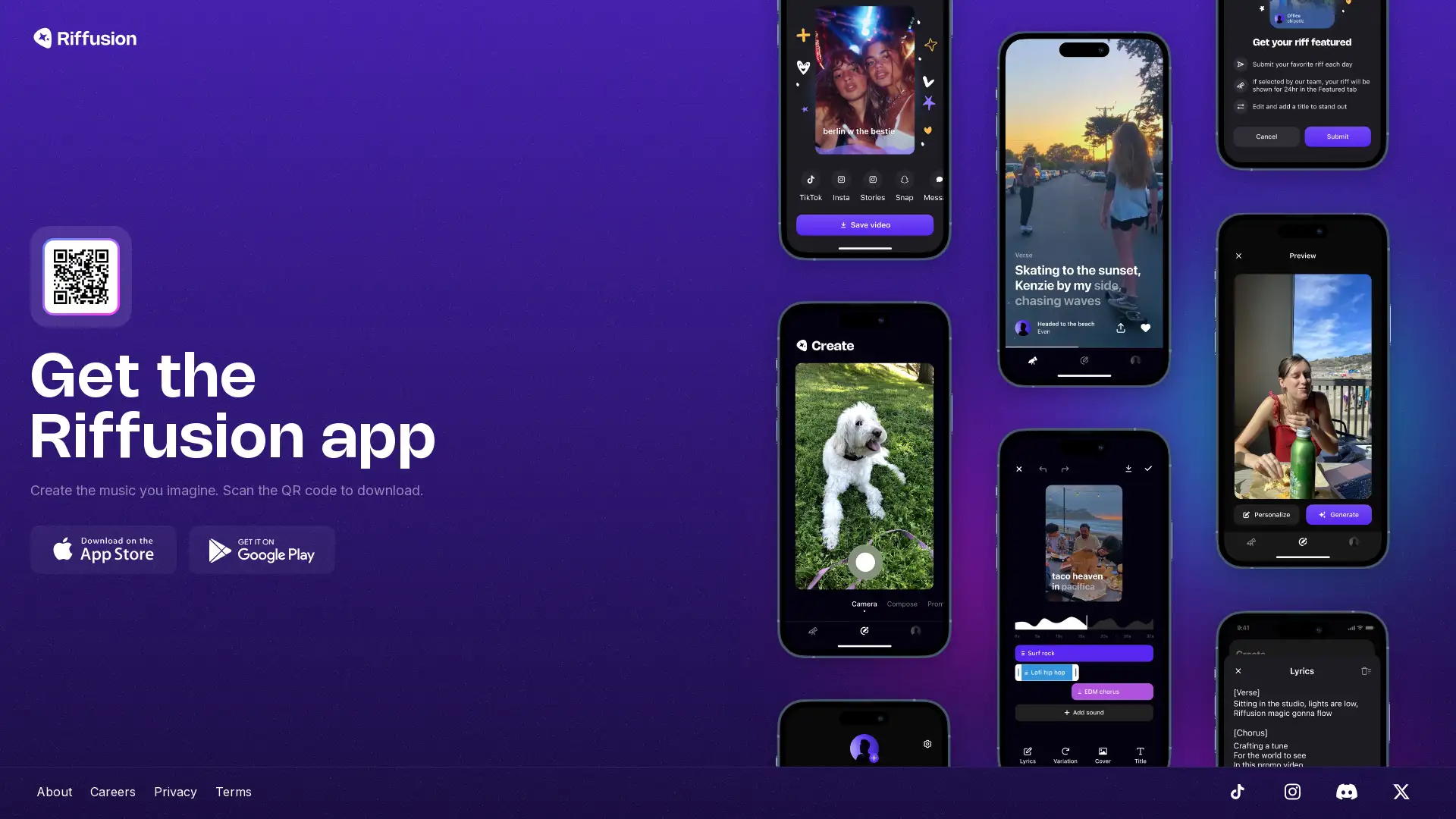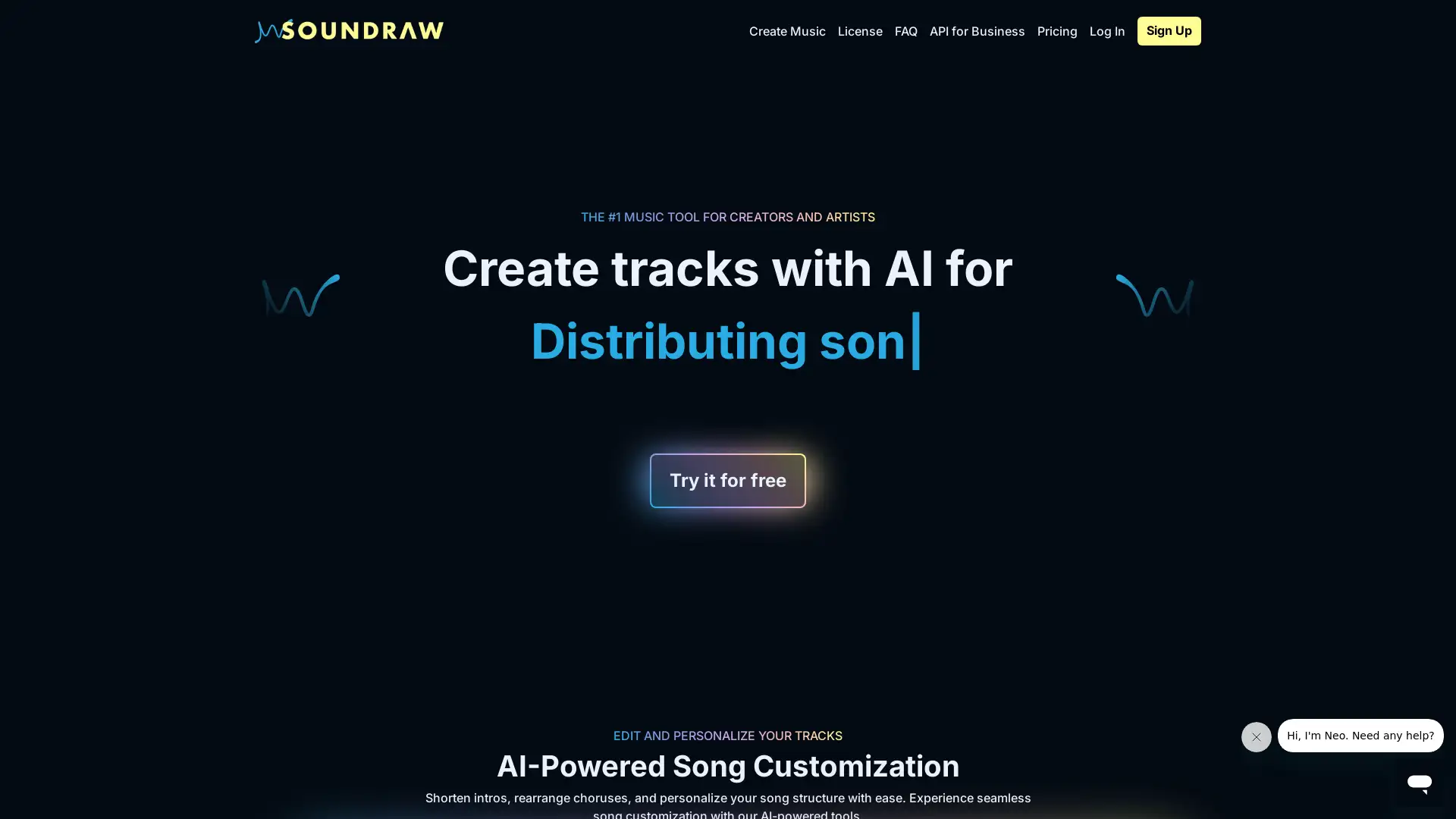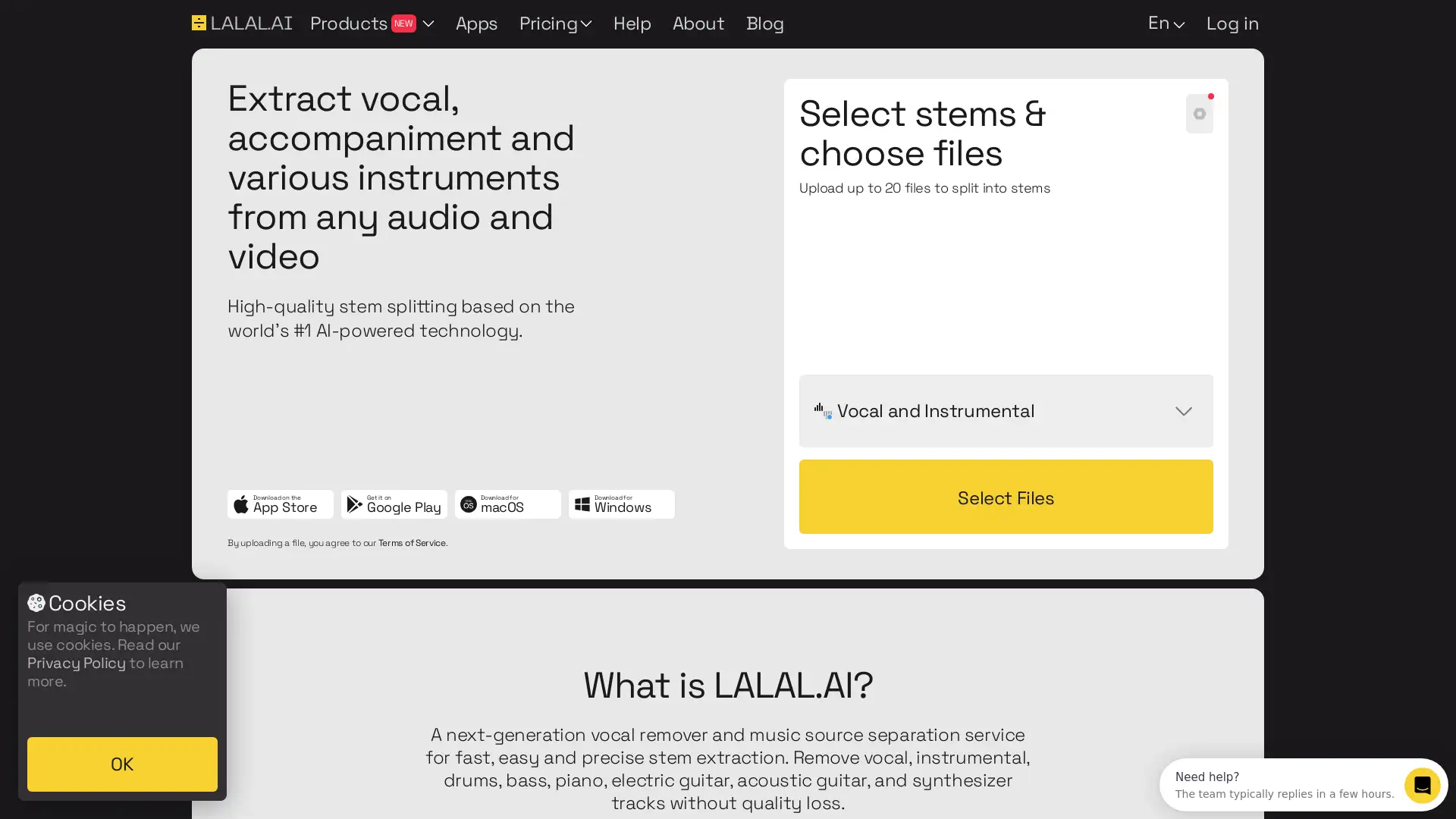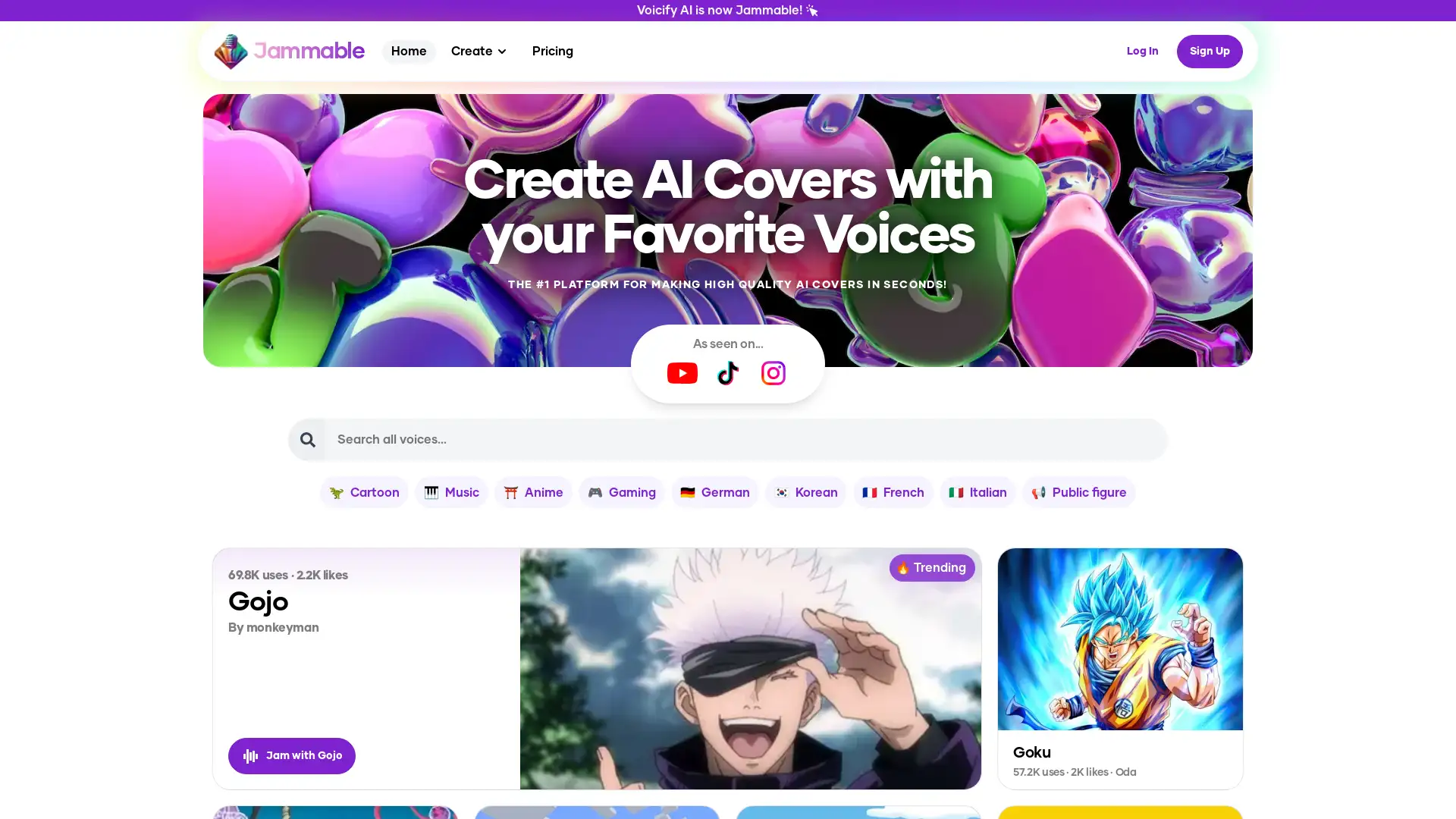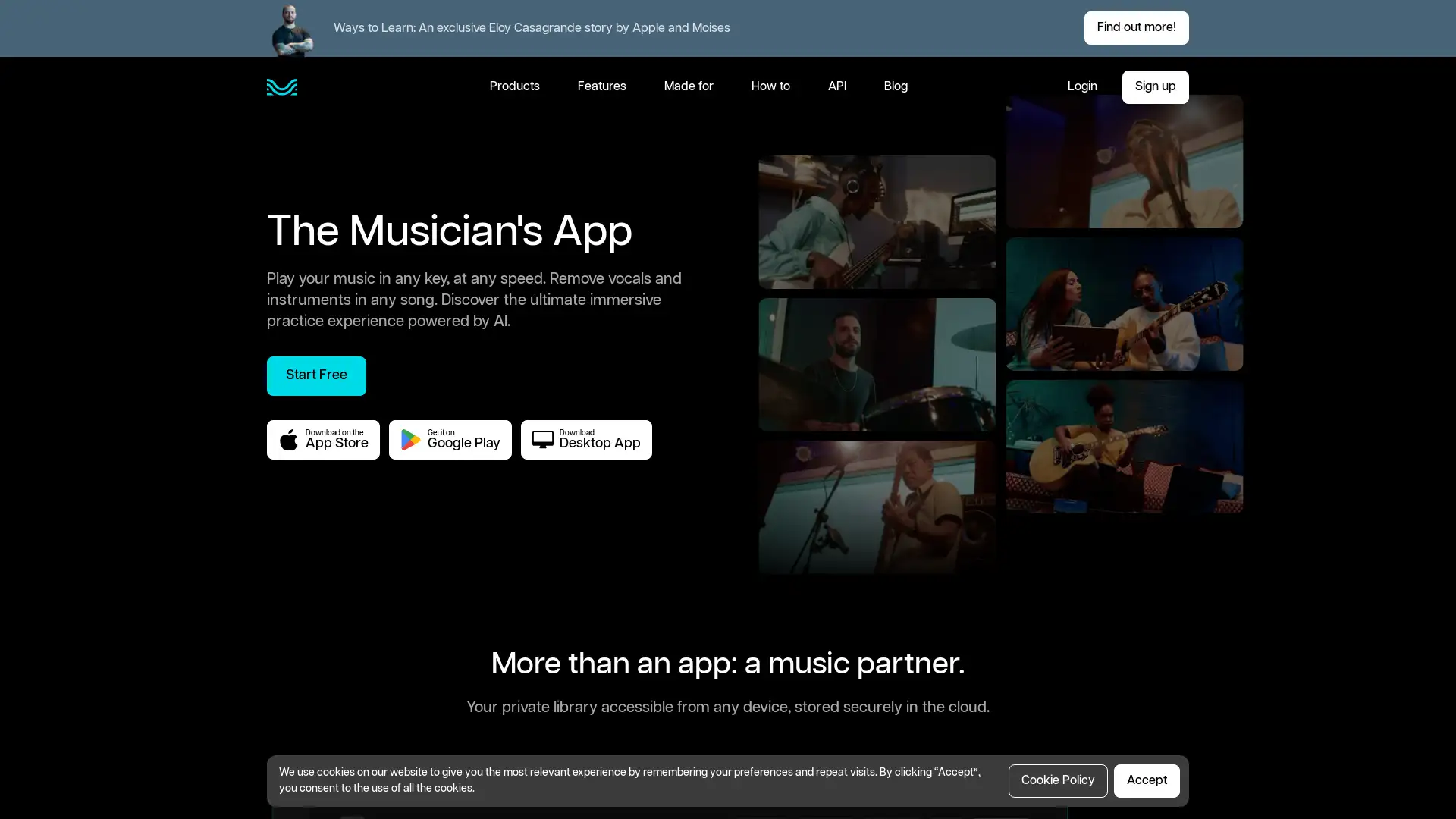Best 6 AI Tools for Music Editing in 2024
Riffusion AI, Soundraw, Lalal AI, Jammable, Moises, Loudly are among the best paid and free Music Editing tools available.
Understanding AI Tools for Music Editing
AI tools for Music Editing refer to software applications or platforms that use artificial intelligence to enhance or automate various tasks in the music creation and editing process. These tools are designed to help users create, modify, and refine music compositions, voice tracks, and sound effects with minimal effort. By leveraging AI algorithms, they offer features like voice customization, cover creation, and generating royalty-free music in seconds. These tools are tailored specifically for musicians, sound engineers, and hobbyists, providing them with smart, fast, and intuitive solutions to complex audio editing tasks.
Key Features of AI-Driven Music Editing Tools
AI tools for Music Editing possess a range of unique characteristics that set them apart. These features include AI-powered voice customization, where users can alter vocal tracks or create covers with different voice types. Another highlight is the ability to generate royalty-free music compositions in seconds, making these tools invaluable for content creators seeking quick, copyright-free audio. Advanced AI technology also enables the creation of unique, professional-quality music compositions, tailored to specific moods or genres. Many tools in this domain are equipped with user-friendly interfaces, making complex editing accessible even for those without extensive technical knowledge. Additionally, these tools often provide options for deep customization, allowing users with coding experience to fine-tune parameters and integrate them with existing production workflows.
Who Benefits from AI Tools for Music Editing?
AI tools for Music Editing cater to a broad spectrum of users. For novices, these tools offer an easy-to-use platform to create high-quality music without requiring deep technical skills. Hobbyists and content creators, such as YouTubers or podcasters, can quickly generate royalty-free music for their projects. Professionals, including sound engineers and musicians, benefit from the advanced customization options and time-saving features, allowing them to experiment with new sounds and arrangements. Developers who seek to integrate AI-driven audio solutions into their applications also find these tools valuable for building customized features. Overall, whether you are a beginner or an expert, these tools provide flexibility and accessibility to enhance music production.
Broader Applications and Insights into AI-Powered Music Editing Tools
AI tools for Music Editing are more than just music generators; they are adaptable solutions that fit into various sectors. From marketing and video production to game development, these tools offer fast, scalable, and high-quality audio solutions. Their user-friendly design ensures seamless integration with existing systems, while advanced features allow for deep customization, making them ideal for professionals looking to refine their creative output. Moreover, their ability to generate copyright-free music compositions makes them indispensable in today’s content-driven economy. The fusion of AI and music opens up new creative possibilities, pushing the boundaries of what can be achieved in audio production.
